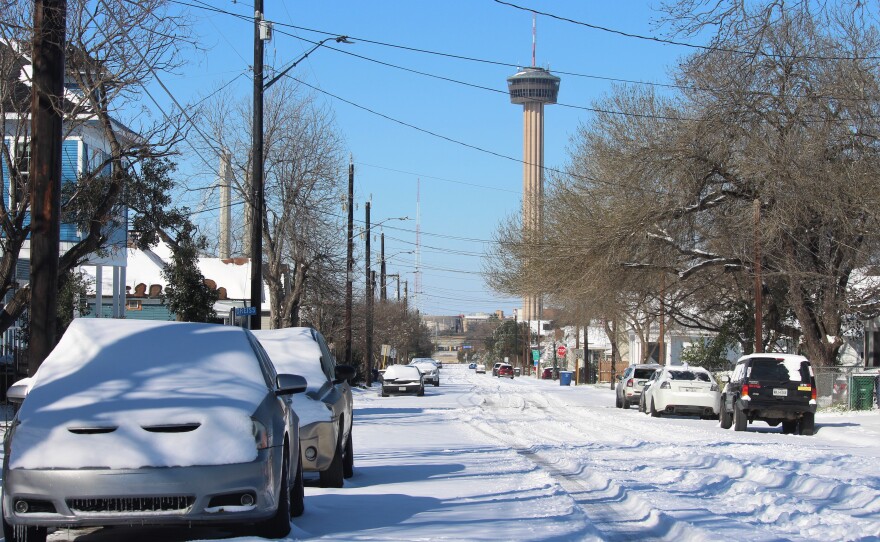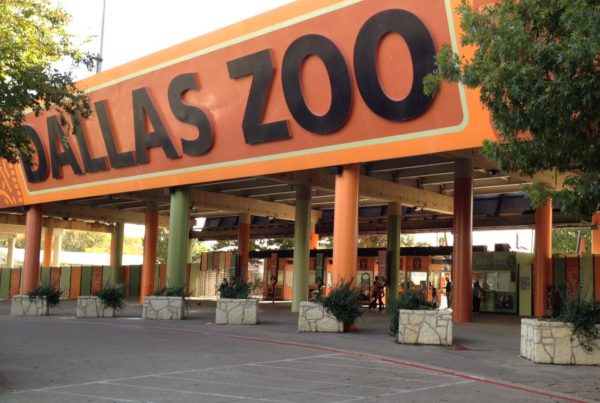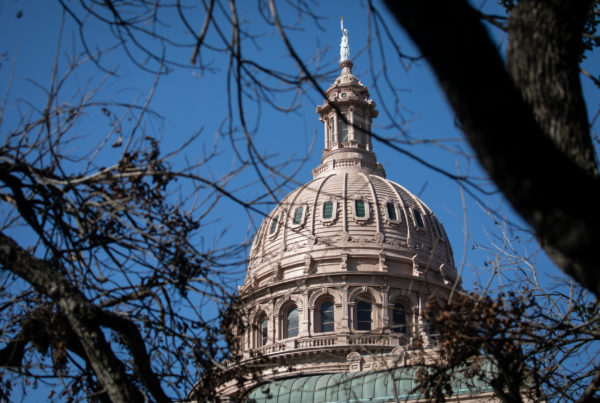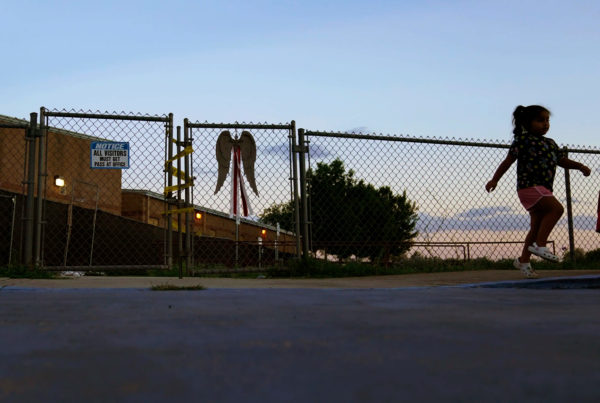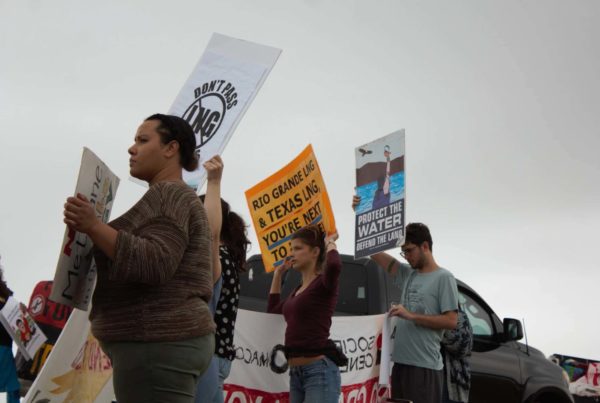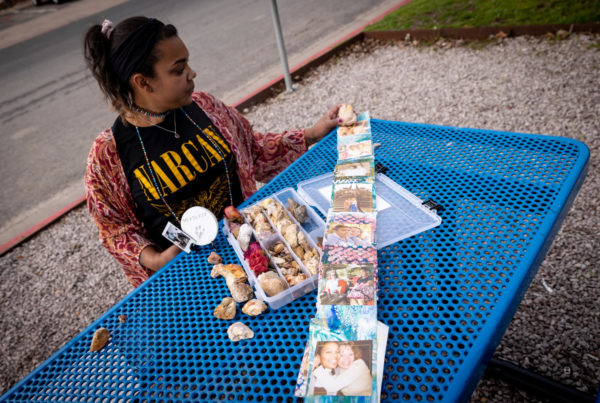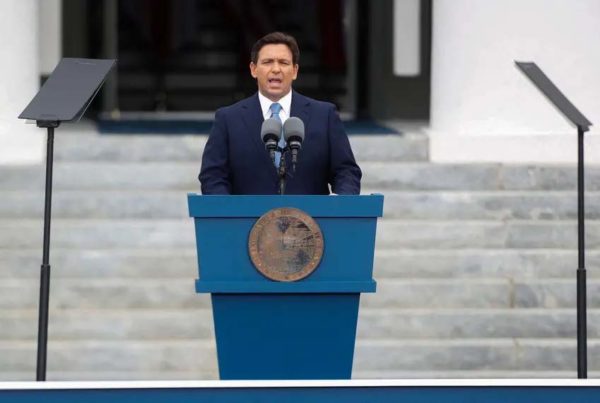Nearly two years after Texas’ historic winter storm blanketed much of the state in snow and ice, San Antonio faces a federal lawsuit against its emergency preparedness plan. The suit, filed on Jan. 27, is asking the city to revise its plan to be more inclusive to residents with disabilities.
Molly Smith, a city hall reporter for the San Antonio Express-News, is following the lawsuit and joined the Texas Standard to share more details. Listen to the interview above or read the transcript below.
This transcript has been edited lightly for clarity:
Texas Standard: During that winter storm in February 2021, a lot of Texas cities opened up emergency shelters for those in need. Can you walk us through the challenges that San Antonio had with its residents with disabilities?
Molly Smith: Yes. So the lawsuit basically alleges that a number of residents with disabilities were unable to access those shelters because, one, there wasn’t transportation that was able to bring them to their homes, where many had lost power, to the shelters. And then the shelters just weren’t accessible to kind of meet their needs. The lawsuit says that, for example, some of the shelters didn’t have cots where someone could easily be transferred from a wheelchair to the cot, or there weren’t refrigerators to store their medication. And so all of these nine residents named in the lawsuit said they had to spend days without power in their home because they just couldn’t access these sites.
The thrust of the lawsuit, it sounds to me like, is that this is about disparate treatment for people with disabilities because people who did not have disabilities were able to access these facilities?
Exactly. I think the crux of the lawsuit is that the plan just really doesn’t take into account the needs of San Antonio residents with disabilities. And according to the lawsuit, which cites city figures, about 16% of the city’s population lives with one or more disability.
What’s the city’s response to the suit so far?
The city hasn’t filed its response yet in federal court. But it released a statement to us, and it said that after that February 2021 storm, it had engaged with community stakeholders and an emergency management consultant who had expertise in disability rights to evaluate and improve the plan. And it said that has brought about some changes – but the city didn’t actually detail what those changes are in the statement.
In your reporting you mentioned this civil lawsuit is the first of its kind against a Texas city, which may be somewhat surprising coming almost two years after the event itself. Are the filings in the suit unique to San Antonio?
The filings are unique to San Antonio. The nine plaintiffs are all San Antonio residents, and it kind of narrowly focuses on San Antonio. But the disability rights lawyer I talked to said that she suspects that these are issues that are possibly taking place with other Texas cities’ plans. They just decided to file suit against San Antonio because they had been able to gather this information, partly through a survey that the legal advocacy organization had put out in the wake of the storm, just to glean the impact that it had against Texans with disabilities.
You mentioned the changes that San Antonio has made since that storm two years ago. Well, we had a storm last week, and it wasn’t anything like as severe as what we experienced in 2021, but do you know if San Antonio or its disabled residents had a different experience this time around?
I don’t know. I would say unique to some other cities in Texas, much of San Antonio stayed with power this time around – but it very much could be, especially if we see, you know, an increased likelihood of severe weather, whether that’s in the summer or in the winter.
Well, now the city, as I understand it, has 21 days to respond once it’s been filed. You mentioned that filing has not taken place yet. What else can Texans expect to see come out of this suit in coming weeks? You mentioned what the attorney was saying about how this likely was not an issue isolated to San Antonio.
Yeah, you know, I think that’s hard to say. I did ask the attorney whether the law firms representing the plaintiffs would be open to maybe settling out of court. And she said, you know, that really isn’t an option for them. They had tried to do that and have negotiations even before filing the suit. So it very much seems like this is something that, unless a judge intervenes and tosses the lawsuit, that these groups really want to see head before a judge.
What damages are they seeking?
So they’re only seeking an award of nominal damage fees to each of the nine plaintiffs. Really, what they’re asking for is for the city to be forced to revise its emergency plan. They’re asking for a court monitor to be assigned to the process. And then another big ask is they’re looking for the city to be required to hire someone or assign someone full-time in the Department of Emergency Management to ensure inclusive planning for residents with disabilities moving forward.


